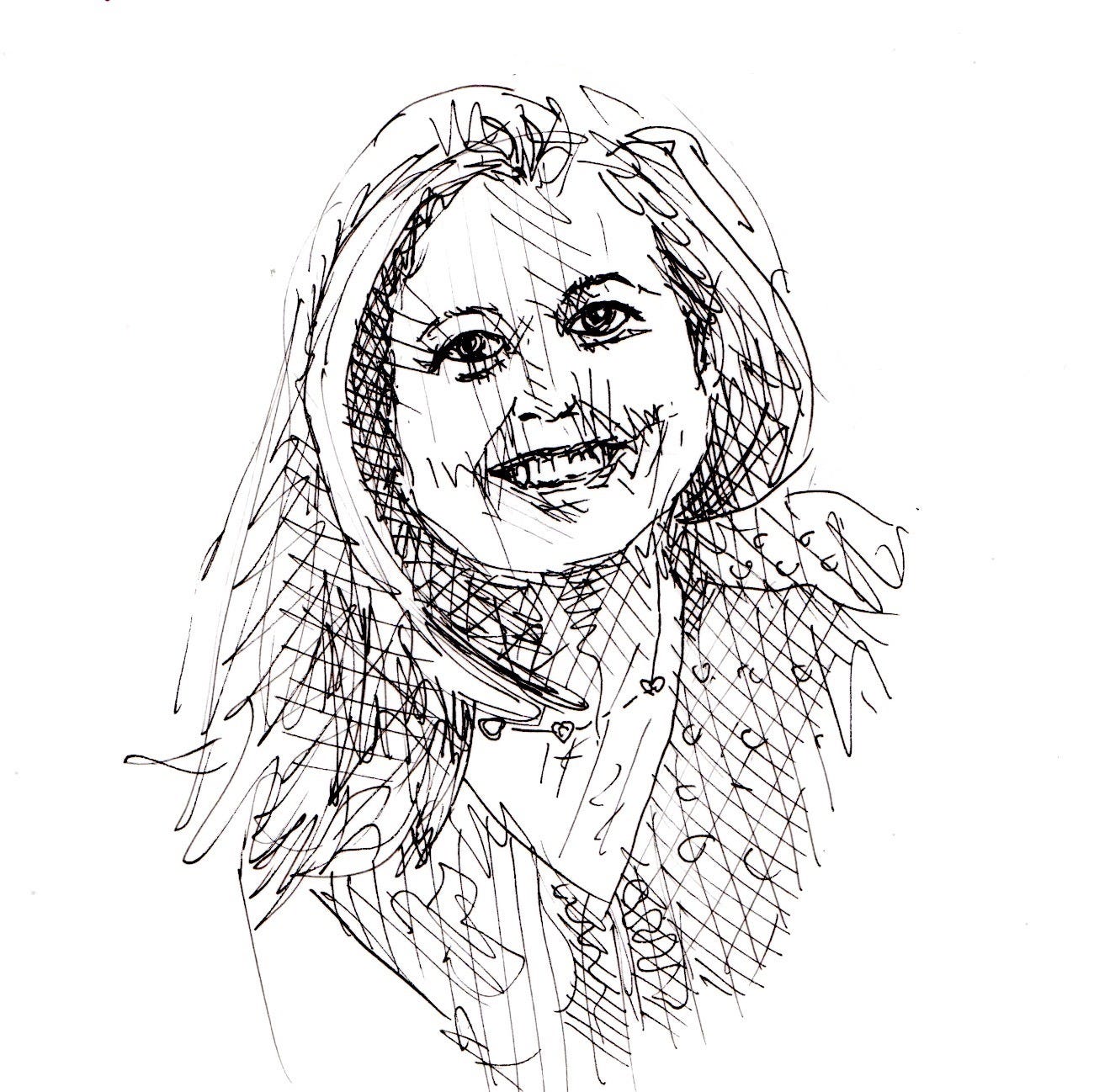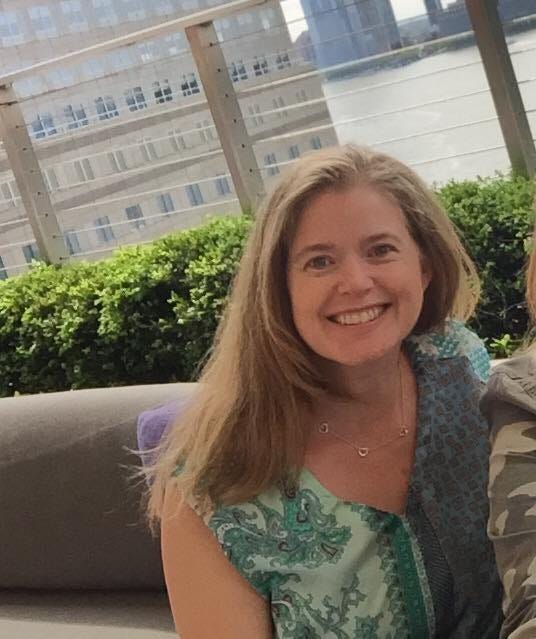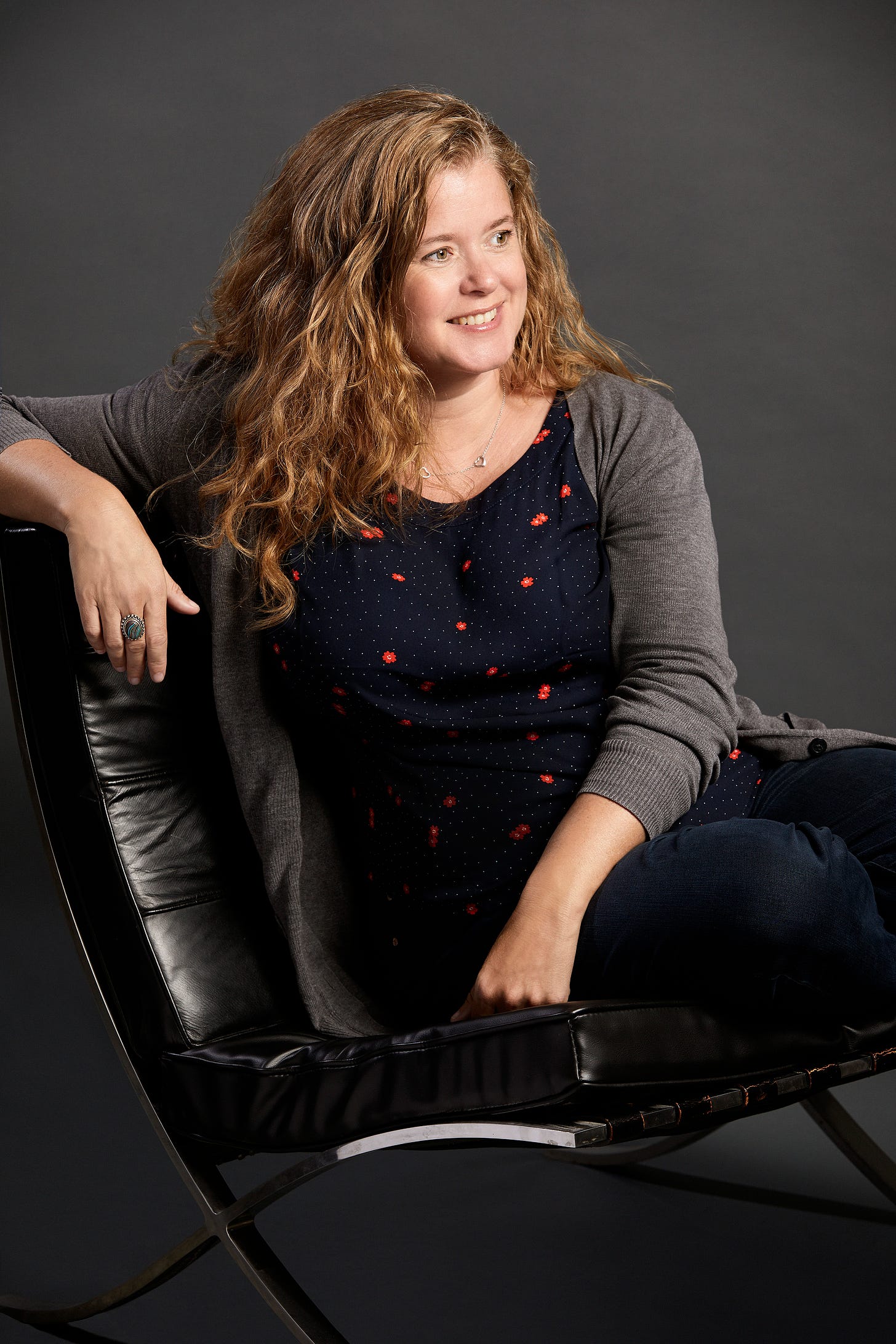Ask a Sober Oldster #20: Sharon Silke
"There was this voice that used to accompany me everywhere. I’d glance at myself in the mirror and the voice would start to tell me what a loser and fuck-up I was. It was there all of the time. "
This monthly interview series is a collaboration between Oldster Magazine and The Small Bow, A.J. Daulerio’s excellent newsletter about recovery and mental health, and will appear in both newsletters. Learn more about this collaboration in this Oldster podcast/videocast episode.

Sharon Silke is a Michigan-based automotive journalist and aspiring law student. She won a National Magazine Award for her work at Car and Driver magazine, loves to drive fast and is the mom to three really awesome human beings.
—
How old are you, and how long have you been in recovery?
I am 51, and have been in recovery for 11 years.
How did you get there?
I think I was an alcoholic from the very first time I got drunk. I drank a ton of cheap beer and then ended up on the floor of a frat house, crying and telling everyone secrets that should have been told to a therapist, not a house full of freshmen college students. I proceeded to drink my way through college, through my early career, through my early marriage, through early parenthood, into my mid-30s, mid-career and mid-parenthood.
One time in college, a classmate called me after a raucous night out to tell me he’d seen me at a bar and he wanted to tell me he thought I was an alcoholic. I brushed him off as a prudish idiot, but his words stuck with me. When alcohol was starting to be a lot less fun, I tried quitting a few times but it never really stuck. The second-to-last time I tried quitting, my sobriety lasted four days and then I decided it was too hard to keep going. “This is just my shitty life now,” I told myself, and proceeded to have one of the most self-destructive summers of my life.
Orange is the New Black came out later that summer, and I remember watching it wondering how I was going to survive as a picky eater in jail, because I was pretty sure I was going to do something that landed me in prison. Luckily for me, I stopped being able to get a buzz off alcohol. One night I had to drink twice as much as I’d drank just a few weeks earlier to even get close to a buzz. When I woke up the next morning, I was taken aback by the empties in the kitchen. I realized I had to stop before I ended up killing myself or someone else. That was September 1, 2013. I haven’t had a drink since.
What are the best things about being in recovery?
The sleep. I am not a great sleeper, but I am such a better sleeper sober than I ever was as a drunk. I used to drink until I passed out, sleep for an hour, then roam my house from 1 a.m. to 4 a.m. until I fell back asleep, then wake up at 6:30 for work. I was constantly exhausted.
The second best part is the silence in my brain. There was this voice that used to accompany me everywhere. I’d glance at myself in the mirror and the voice would start to tell me what a loser and fuck-up I was. It was there all of the time. I didn’t notice it had gone away until one night when I was sober and sick with the flu. I got up to go to the bathroom, and ended up falling asleep on the toilet. I woke up a few minutes later, chuckled to myself and shuffled back to bed. I realized if I had been drinking and passed out on the toilet, I would have ended up berating myself for weeks about what a loser I was. I’m so glad that voice is gone. Sayonara, asshole.
One time in college, a classmate called me after a raucous night out to tell me he’d seen me at a bar and he wanted to tell me he thought I was an alcoholic. I brushed him off as a prudish idiot, but his words stuck with me. When alcohol was starting to be a lot less fun, I tried quitting a few times but it never really stuck. The second-to-last time I tried quitting, my sobriety lasted four days and then I decided it was too hard to keep going. “This is just my shitty life now,” I told myself, and proceeded to have one of the most self-destructive summers of my life.
What’s hard about being in recovery?
Socializing. I’m a pretty shy person, and I miss the social lubrication that came with drinking. I used to be really funny and entertaining, to a certain point, when I was drinking. That is, until I got messy and repetitive and annoying. Sometimes I wish I could get a little bit of that early buzz pizzaz back, but it’s not worth throwing everything else away for. So I continue to hang out with people and socialize, and just sit there awkwardly hoping no one realizes how out of place I seem.
The other thing I miss is the easy excuse after saying some dumb shit while drunk. I still manage to say dumb shit, but I don’t have the excuse of, “Oh sorry about that, I was tipsy when I said that.” I just have to say something like, “Oh sorry about that, I am just a jerk sometimes.”
How has your character changed? What's better about you?
I am so much more honest now than I was while drinking. I used to find it kind of fun/funny to lie to people. It was something I started as a kid to get attention, and then kept it up as an adult. I used to tell people I was in the Hungry Hungry Hippos commercial as a child. I totally wasn’t. But it made me the center of attention for a little while, and people would pretend like they remembered me from the commercial, and I would be a pseudo-celebrity for the evening. I don’t do that kind of stuff anymore, and I don’t do more serious lies to people close to me anymore either. I really can’t stand to lie, which is so weird. It fills me with a sense of dread and I feel like I’ve murdered someone’s puppy. It’s not worth the mental weight.
What do you still need to work on? Can you still be a monster?
I am so frigging lazy and so prone to victimhood. They are partner flaws—I’m lazy because the world is so hard and overwhelming, so I must retreat to my bed and doomscroll TikTok for seven hours just to cope. I’m trying to fix that.
I’m also in recovery from binge eating, and although being in recovery from that is overall pretty good, I’m also kind of resentful not to have that as a coping skill anymore. (P.S. I just wrote the words “recovery from binge eating” and then remembered I have a jar full of candy conversation hearts in the house, and am now chowing down on a handful of sugar. So maybe I do use food to cope still. Yay?)
I am so much more honest now than I was while drinking. I used to find it kind of fun/funny to lie to people. It was something I started as a kid to get attention, and then kept it up as an adult. I used to tell people I was in the Hungry Hungry Hippos commercial as a child. I totally wasn’t. But it made me the center of attention for a little while, and people would pretend like they remembered me from the commercial, and I would be a pseudo-celebrity for the evening.
What’s the best recovery memoir you’ve ever read? Tell us what you liked about it.
In early recovery, I read a ton of quit lit books. My favorite was Blackout: Remembering the Things I Drank To Forget by Sarah Hepola. One of my favorite things about being in recovery is being able to talk to other addicts and laugh till our cheeks hurt over the stupid things we did while under the influence, and I felt like I was listening to a recovery friend tell me some excellent stories while reading Hepola’s book. I was sad when I got to the end; I wanted to know more about her actual recovery.
What are some memorable sober moments?
I initially got sober with the help of an online Facebook group, because I wasn’t at first wild about AA. So many of my sober friends are scattered about the country and some are in other countries. I used to travel a lot for work, so I have made it a point to meet as many people from that Facebook group as possible when I’m on the road. Some of my favorite memories are those meetups.
People in recovery are some of the best people in the world, and I love how easy it is to connect on a deeper level with other addicts. And I love the dark sense of humor a lot of us have. I also try to hit AA meetings in other cities, and have some good memories of meetings in Los Angeles, New York, Paris, Geneva and Hawaii. Seeing people around the world dealing with the same issues makes me feel like I’m not alone.
I’m also in recovery from binge eating, and although being in recovery from that is overall pretty good, I’m also kind of resentful not to have that as a coping skill anymore. (P.S. I just wrote the words “recovery from binge eating” and then remembered I have a jar full of candy conversation hearts in the house, and am now chowing down on a handful of sugar. So maybe I do use food to cope still. Yay?)
Are you in therapy? On meds? Tell us about that.
Yes to both. I’m on a low dose of Prozac to keep the scaries away. And therapy for the eating disorder stuff, which taps into a lot of similar avoidance issues that fed into my alcoholism.
What sort of activities or groups do you participate in to help your recovery? (i.e. swimming, 12-step, meditation, et cetera)
I have a daily gratitude practice, which is not as daily as I’d like, but which helps keep me centered and not feeling hopeless. I dabble in AA – kind of lost the thread during Covid when meetings all went online. And I try to work out a few times a week.
Are there any questions we haven’t asked you that you think we should add to this? And would you like to answer it?
Is sobriety the best thing that you’ve ever done?
Yes, absolutely, hands down it’s the hardest and best thing I’ve ever done. I am so grateful I’m an addict so I get to experience the joy of recovery, even when life is doing it’s life-y thing and not being so much fun. A lot of people who are addicts don’t ever make the turn into sobriety; I feel so lucky that I found recovery and that it finally worked.








Hi Sari and Sharon. Thank you for the vulnerability and humor shared here. I am a psychiatrist 16 years in recovery who runs a confidential program for physicians and other health pros in WA that have substance and mental health problems that are negatively impacting their practice. I am new to substack and this article was, for whatever reason, the first I came across as I began exploring the platform. In recovery communities we call that a “God shot.” Anyway, I am now subscribed and looking forward to more! At 55, Oldster seems like my vibe!
Hi, Sari, I think I'm ready to do the questionnaire. If you have a lot of them waiting in line, just file mine in the back somewhere. I'm not in a hurry. By the way, I will turn 86 on Friday, Feb. 21. Can't believe it. That seems seriously elderly.